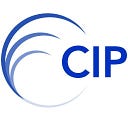Ngozi Okonjo-Iweala-Iweala is set to be the first African and the first woman to lead the WTO — but the U.S. stands in the way
On Wednesday, October 28, the World Trade Organization picked Dr. Ngozi Okonjo-Iweala, Nigeria’s former Finance Minister and a world-renowned economist and international development expert, as its next Director-General. Dr. Okonjo-Iweala amassed the broadest support among the 164 members of the WTO, making her the most likely candidate for this highly coveted position. As Dr. Okonjo-Iweala inched closer to making history as the first woman and the first African to be elected as the director of a global trade organization, the U.S. government is attempting to block her appointment. The Office of the U.S. Trade Representative issued a statement saying it would back Korean Trade Minister Yoo Myung-hee for the Director-General position, asserting that the WTO must be led by “someone with real, hands-on experience in the field.”Dr. Okonjo-Iweala has a stellar track record in the field of economics of trade, having twice served as Nigeria’s Finance Minister, and working in senior leadership positions at the World Bank for 25 years as a development economist. She currently serves as the Chair of the Board of Gavi, the Vaccine Alliance.
As one of Africa’s most prominent economists and women leaders, there is little doubt that Dr. Ngozi is more than qualified for the WTO. The U.S.’s rejection of her candidacy has less to do with Okonjo-Iweala’s competence and more to do with the Trump administration’s blatant racism along with its anger over recent criticism of U.S. tariffs imposed on China.
In 2018, President Trump referred to Central American and African nations as “shithole countries,” sparking outrage from African countries and the African Union. Trump’s blatant racism towards Africans and his complete disregard for the continent was seen again when in February, President Trump announced a travel ban against citizens of Eritrea, Nigeria, Sudan, and Tanzania, expanding a previous ban that included Libya and Somalia. In addition to putting in place racist immigration policies that harm Africans, the Trump administration has also attacked Africans working in international organizations like the World Health Organization (WHO) and the International Criminal Court (ICC), as well as regional organizations like the African Development Bank (AfDB).
Despite his own disastrous handling of the COVID-19 pandemic, in May, President Trump called out the WHO and wrote a letter to Dr. Tedros Adhanom, the first African head of the organization, criticized his “political gamesmanship” and his “missteps” in handling the global pandemic response. The International Criminal Court’s chief prosecutor, Fatou Bensouda, a prominent Gambian lawyer, became the next victim of Trump’s attacks as she and her aide were sanctioned by the Trump administration for their investigations of alleged war crimes committed by the U.S. military in Afghanistan. Regional organizations like the African Development Bank (AfDB) were also a target for the Trump administration’s attack. Earlier this year, Nigerian banker Akinwumi Adesina, who heads the AfDB, was cleared of corruption and abuse allegations after an internal investigation. But U.S. Treasury Secretary Steve Mnuchin rejected the result and demanded an independent probe. An independent panel later cleared Mr. Adesina of all the corruption charges.
Dr. Okonjo-Iweala’s has campaigned on her desire to “restore the vision of the WTO as an organization delivering for development” and of her commitment “to lift the lives of people and bring shared prosperity”. As the world awaits November 9th to see what the outcome of the WTO elections will be, one can only hope that the U.S. joins Dr. Okonjo-Iweala’s supporters as she stands to make history as the first African and the first woman to hold the director-general position. Dr. Okonjo-Iweala’s appointment would come at a time when the WTO is in need of reform, and when our world needs competent women who can lead global institutions to become more responsive to the development needs of the world’s majority.
Nani Detti
Communications Intern,
Africa Program
